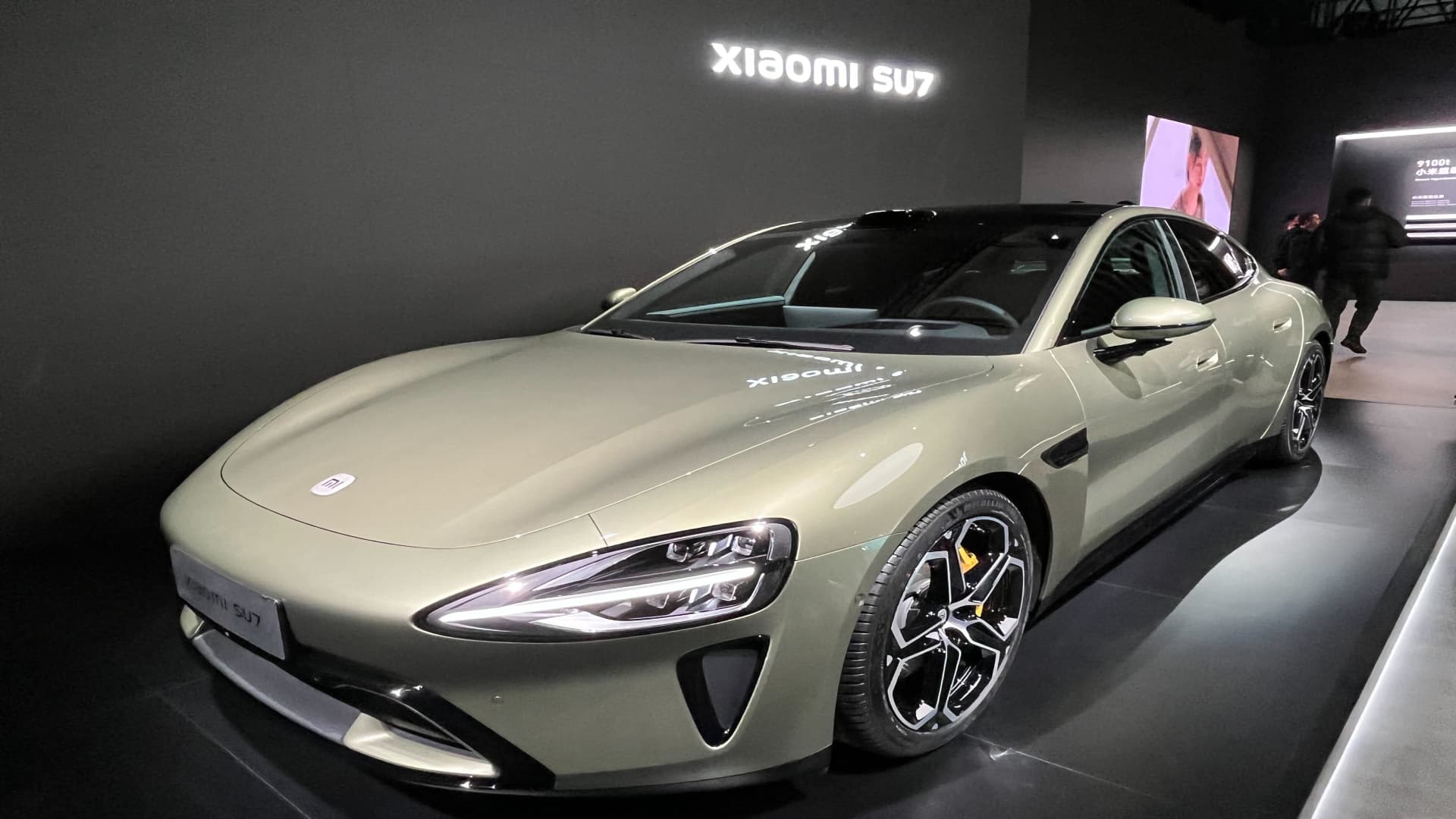BEIJING — Chinese consumer electronics company Xiaomi on Thursday detailed plans to enter China’s oversaturated electric vehicle market and compete with automaker giants Tesla and Porsche with a car model it says it spent more than 10 billion yuan ($1.4 billion) to develop.
The company’s car model, known as Xiaomi SU7, “is in trial production and it will hit the domestic market in a few months,” CEO Lei Jun said in a Tuesday post on the X social media platform, formerly known as Twitter. “The price has not been finalized yet.”
Pronounced “Sue Qi” in Mandarin, the Xiaomi SU7 beats Porsche’s Taycan and Tesla’s Model S on acceleration and other metrics, Lei said during a three-hour presentation on Thursday.
He laid out bold ambitions to become an industry leader, including in autonomous driving and noted that the SU7 design team previously worked at BMW and Mercedes Benz.
Sales are due to begin in 2024, after more than three years of development— during which electric vehicles have taken off in China’s highly competitive market, and domestic automakers have begun to differentiate their products through ambitious offerings of car-compatible tech.
This is an area of potential advantage for Xiaomi, which is best known for its smartphones and home appliances and previously said it wants to create a “‘Human x Car x Home’ smart ecosystem.”
The SU7 is integrated with Xiaomi’s smartphones and internet-connected home appliances, Lei announced Thursday. He emphasized the company’s efforts to ensure data privacy among the devices and create a car that surpasses U.S. safety standards for rear-end collisions.
Lei said the vehicle will also be compatible with Apple’s iPhone, iPad, CarPlay and AirPlay. The U.S. giant has yet to release a car despite widespread speculation of such plans.

Two Xiaomi SU7 models appeared on a list of tax-exempt new energy vehicles published by the Ministry of Industry and Information Technology on Tuesday.
The document described the cars as purely battery powered, with driving range of 628 kilometers (390 miles) to 800 kilometers. The ministry listed a subsidiary of state-owned BAIC Group as the manufacturer for the Xiaomi SU7.
While the car isn’t yet available, Xiaomi has started selling its flagship smartphone and smart watch in the “aqua blue” and “olive oil green” colors of the SU7 sedan.
A price for the SU7 has yet to be revealed, but Lei hinted the purchase would not be cheap and dismissed rumors of a 99,000 yuan or 140,000 yuan price tag.
The Xiaomi car tech event comes as several domestic EV players have recently revealed new electric vehicles.
- Nio on Saturday debuted its 800,000 yuan ($113,090) ET9, set to begin deliveries in the first quarter of 2025.
- Huawei’s Aito brand on Tuesday unveiled its M9 SUV — starting at 469,800 yuan and due to begin mass deliveries in late February 2024.
- Zeekr, backed by Geely, on Wednesday announced its 007 sedan would start at 209,000 yuan with deliveries beginning on Jan. 1.
Xpeng, which Xiaomi backed in 2019, is set to launch its X9 vehicle on Jan. 1, 2024. Ahead of the Thursday event, Lei shared pictures on popular Chinese social media platform Weibo which showed buildings lit up with messages of Xiaomi saying it salutes BYD, Nio, Xpeng, Li Auto and Huawei.
Xiaomi shares closed 0.25% lower in Hong Kong trading on Thursday. The company’s Hong Kong-traded shares are up by more than 40% so far this year. The business claimed record sales of more than $3 billion across various e-commerce platforms during this year’s Singles Day shopping festival.
Xiaomi has said it expects to spend 20 billion yuan ($2.8 billion) on research on development this year, up by 25% from 2022 and more than double the amount spent in 2020.
